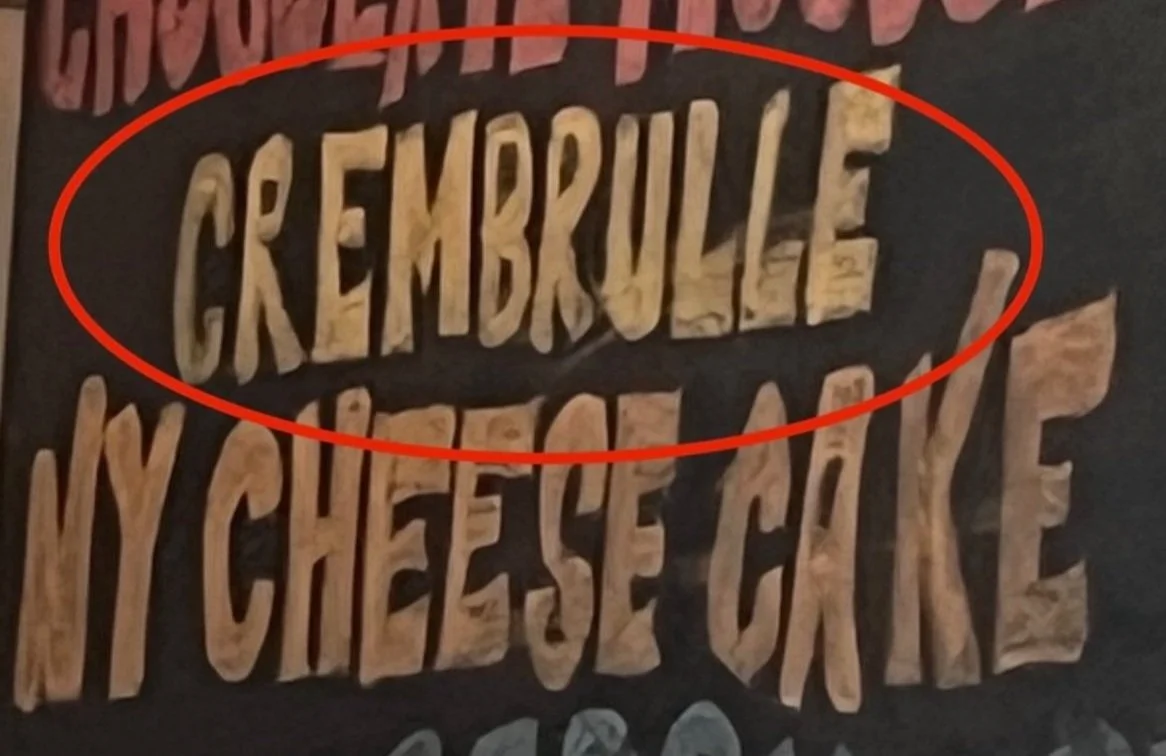Something Went Horribly Wrong!
Looking for something specific on the blog?
Photo by Joshua Hoehne on Unsplash
By Eliot Kleinberg
With Lou Ann Frala
A blog about better writing
From the Grammar Police
In our first Grammar Police segment of 2023, on Jan. 8, we showed some of the chronic goofs out there. We couldn’t fit them all in! Here are more. These are about money.
As always, we give leeway when people are rushing to tweet something. Reminder: The last sentence literally says, “four dollars dollars.”
You can substitute slang, but this still says “Fifteen dollars bucks.” Which is the same as “Fifteen dollars dollars.”
Redundancies abound! First, as with the gasoline tweet, this literally says, “five dollars dollars.” But wait! There’s more! While not grammatically wrong, this certainly can be tightened. First, the “.00” is extraneous. And there are no instructions —actually, they’re self explanatory — so take out the word! Now it just says, “Computer rental: $5 up to 15 minutes.” Done.
theastrolab.com
This one nearly caught us. We thought for sure we had another “dollar dollar” example. But this is correct! It turns out there is a drink called a "dollar martini.” Who knew?
Again with the currency goofs! We once more will remind you that .50¢ doesn’t mean a half dollar. It means a half penny. Doesn’t it? Look. Just remove the period. We did. Makes sense now. Doesn’t it?
And we go to the video archives for Segment 35: Scuffling with sports clichés. https://youtu.be/osJ3vufgx64
Items before the Assizes:
Oyez, Oyez, Oyez! On the docket:
Longtime reader and occasional contributor Bob Yankowitz respectfully submits an objection to part of Segment 2, on redundancies, dating all the way back to Jan. 31, 2021.
We decried the need for an advertiser to include the state and zip code when listing the address of his/her establishment. We argued that folks reading the ad likely lived in the area and knew exactly what state both they and the establishment were in (and we still don’t know why you need a ZIP code!). That’s especially the case in “Horribly Wrong’s” base of South Florida, where it’s a drive of about five hours to the nearest state line.
Bob argues New England, where he lives, is a different story. After all, you can drive across the entire region in a few hours. And we found a web page dedicated strictly to town names that appear in more than one New England state. Would you believe there’s a town of Warren in each one?!
We also note that our own Lou Ann Frala hails from Kansas City, Missouri, which is right next to Kansas City, Kansas. Oy.
On Bob’s motion, the rules committee CONCURS, based on circumstances and location. As always, use common sense first.
Readers: "Something Went Horribly Wrong" features samples of bad writing we see nearly every day. You can participate! Be our duly deputized “grammar police.” Your motto: “To protect and correct.” Send in your photos of store signs, street signs, menus, TV news graphics, newspaper headlines, tweets, and so on. It doesn’t have to be a grammatical error. It can be just what we call “cowardly writing.” Include your name and home town so we properly can credit you. You're free to add a comment, although we reserve the right to edit or omit. Now get out there! Send to Eliot@eliotkleinberg.com
Haven’t signed up for our newsletter yet? Do it now! And tell your friends!
NOTE: Eliot and Lou Ann are available for speaking engagements, and can travel. Reach us through the comments section. Just think of all of your employees getting back to work on a Monday, their heads filled with all the ways we’ve shown them to be better communicators!







































